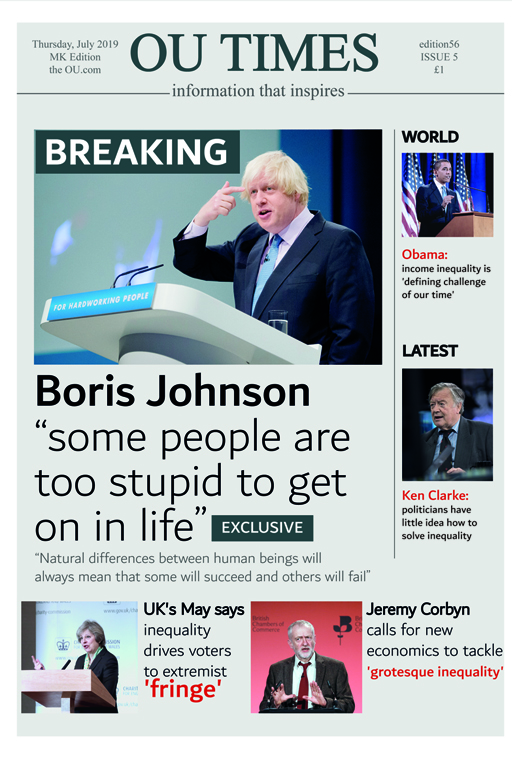2 Everyday inequality
Inequality is a term that you encounter frequently in everyday life. It might refer to many different factors such as gender, social status, health or wealth. In this section you will explore different meanings of inequality.
Activity 2 Inequality in everyday life
The images below show some examples of how inequality manifests itself in everyday life.
Reflecting on these images and your personal experiences, how do you perceive inequality in your everyday life?
In Figure 2 you saw that households were rewarded for their labour by being paid wages. How should these wages be distributed to meet our idea of equality?
Activity 3 Equality of what?
Would you expect all households in the economy to receive an equal wage? Can you identify any situations in which it would be fairer for one person to be paid more than another?
Answer
The labour provided by households need not all be of the same type or quality. An individual might undertake a university course or other type of training to offer a higher level of skills to an employer. Similarly a worker with a great deal of work experience has more skills to offer than someone new on the job. For example during the course of their career a nurse will acquire experience and maybe more qualifications. As the nurse progresses through their career from auxiliary nurse to sister or to matron you might expect this increase in qualifications and experience to be rewarded with a higher wage.
What do you think an equal society ought to look like?
Answer
Some say that in an equal society, everyone should receive the same outcome of their efforts. For instance, workers with the same levels of education should be paid the same wage. This is often not the case, and it has been shown that women and people from BAME backgrounds tend to be paid less than men and non-BAME people respectively, even at the same level of skills. Others refer to equality of opportunity: All people should be given the same opportunity, for example to gain education and skills, regardless of where they live, their gender or parental background. In this case, if some people are able to take better advantage of these opportunities, inequality of outcome may be justified.
What aspects other than income do you think matter for equality?
Answer
Indian economist Amartya Sen (1985) argues that equality involves other aspects of our well-being apart from income. Happiness is more than just the goods and services that you consume. It also includes the activities that you undertake, your abilities and health, laws that govern our live, freedom of speech, how safe you feel and the type of neighbourhood you live in.
Although many factors influence equality, economists tend to deal with inequality in terms of income and other monetary resources? Why do you think is that?
Answer
In practice it is difficult to measure and quantify many of the aspects related to happiness. Income is a narrower concept of well-being but is much more readily measured and compared across people.
While economists care about other meanings of inequality, such as happiness, health, and abilities, they tend to use monetary resources, such as income or wealth, to understand these different meanings of inequality. Inequality in monetary terms is what is called economic inequality. You will explore what it is in more detail in the next section.



